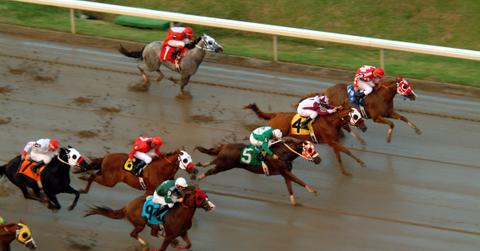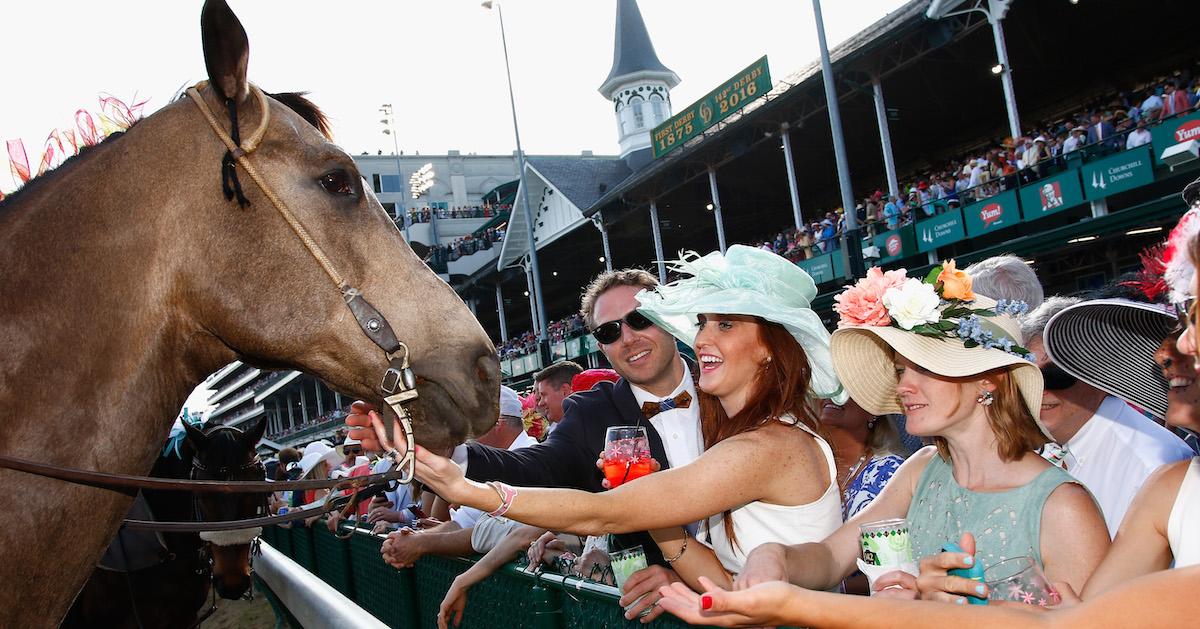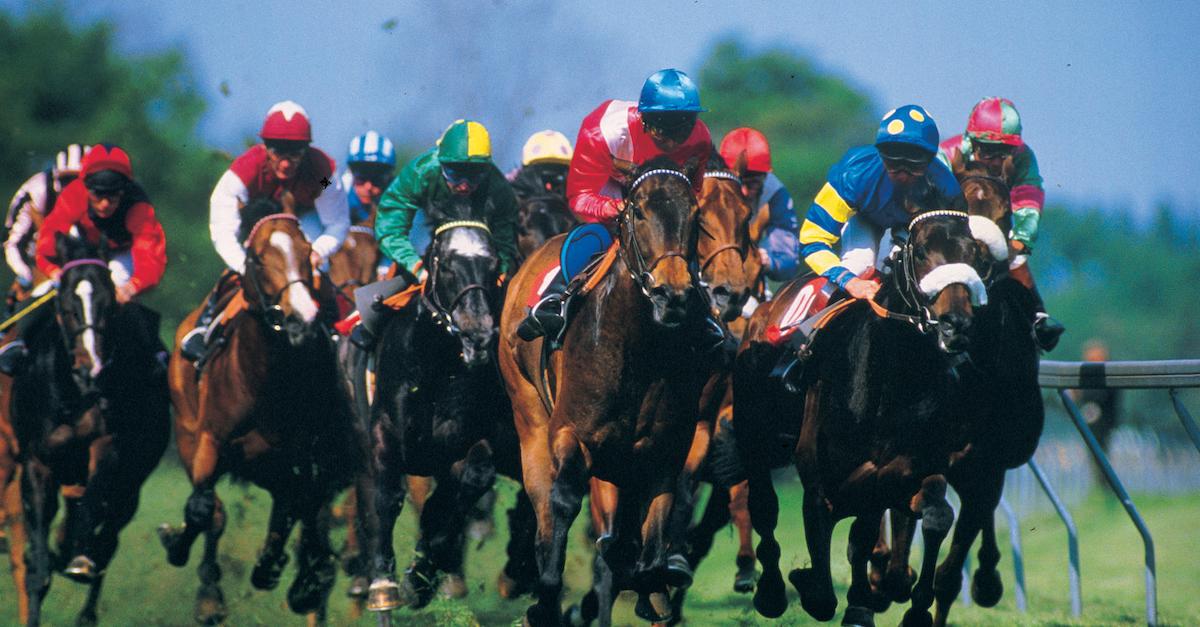The Kentucky Derby Has a Dark History of Horse Abuse
"If the sport cannot find a way to rid itself of a culture that abides all of this it not only won't survive — it won't deserve to survive."
Updated May 2 2024, 9:26 a.m. ET

Though horse racing is extremely popular in the U.S., it's notoriously abusive. Allegations of drugging and euthanizing horses who are injured or can't perform have plagued the sport for years, but yet, the Kentucky Derby remains to be one of the most popular athletic events in the country, to date.
Some pretty devastating things have been found in racing stables — especially for horses that make it to the annual races.
“We wanted to know exactly what happens to thoroughbreds in a top racing stable,” Kathy Guillermo of PETA told The New York Times after accusing trainers of cruelty back in 2014. “It was devastating to see sore, exhausted, drugged horses every single day. Some were in so much pain it hurt them even to stand, yet they were trained and run anyway.”
Keep reading for everything you need to know about the history of horse abuse surrounding the Kentucky Derby.

What to know about the horse abuse in the Kentucky Derby races:
In 2024, New York Times reporters Melissa Hoppert and Joe Drape revealed a documentary titled The New York Times Presents: Broken Horses, which examines the shocking increase in deaths surrounding the Kentucky Derby, which totaled 13 in 2023.
"No one wants to watch horses suffer, but that is what makes this issue so important," says Hoppert in an interview about the documentary episode, which aired on Hulu and FX on May 1, 2024.
Similarly, in 2014, PETA posted an investigation into the abuse to YouTube, honing in on one of the country's most successful race horse trainers, Steve Asmussen. As a regular at the Kentucky Derby, he has an extensive record of rule and drug violations. He is notorious for putting his horses through tremendous pain and exhaustion, treating his horses like "disposable commodities," and giving his horses a "steady diet of drug cocktails."
For example, Asmussen was reportedly found to be administering thyroid medication to all of his horses thyroid medication, regardless if they had a condition, as it was simply being used to speed up their metabolisms. And of course all of them had to take pain masking medication.
"With all the medications the horses were being given, even in their feed, it felt more like working in a pharmacy than a stable," an anonymous person who worked at one of his stables admitted in the video.
The video states that 24 horses weekly die on race tracks in the U.S., and many deaths and injuries go completely undocumented, to keep the dangerous sport going. Before they're even old enough, horses with undeveloped bones are forced into the sport, which ultimately takes a toll on their undeveloped bodies. Throughout their lives, race horses are then regularly pain masking drugs just to push through the pain.
Generally, they're euthanized afterwards.

How many horses have died in the Kentucky Derby?
You may recall the 2021 story of the "disgraced winner of the race," Medina Spirit, who won, was disqualified for having a positive drug test, and died prematurely days later of a heart attack — at only three years old. Between 2010 and 2019, the Kentucky Horse Racing Commission reported 237 race-related horse deaths.
In 2023, 13 horses died on or around the Kentucky Derby, according to Spectrum News, an increased number of deaths from the previous year. Many, however, go unreported.
The state of Kentucky "conveniently" doesn't require horse death records, and it's assumed many die in training long before the race. If you'd like to invest in helping the horses, as opposed to supporting the dangerous sport, New Vocations, Canter USA, Second Stride and Thoroughbred Retirement Foundation are all charities that support, relocate, and fight the well-being of former racing horses, because clearly, their trainers don't care enough to do so.
Some worry this means horse racing won't be around for much longer — though that might be a good thing.
"If the sport cannot find a way to rid itself of a culture that abides all of this it not only won't survive — it won't deserve to survive," Andrew Cohen wrote in a 2014 article for The Atlantic.
This article has been updated since it was first published on May 6, 2022.